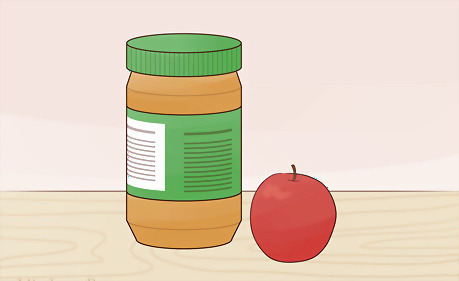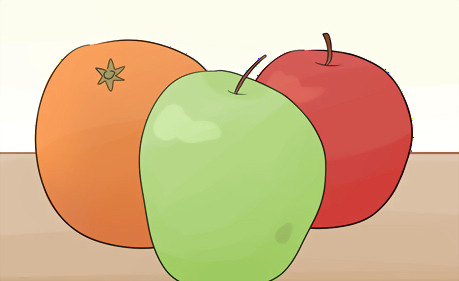
views
Encouraging Eating

Bring them food. The quickest answer to executive dysfunction is to simply initiate and complete the task yourself. Ask them what they want, make it, and guide them to the table to eat it. Don't expect them to have an "age-appropriate" level of cooking skills. Executive dysfunction and motor skill impairments may make it difficult or impossible for autistic teens and adults to prepare their own food.

Try prepping food together, if the person has the skills to handle it. Initiate the task yourself, and get them to join in. Maybe you get out the ingredients while they make their sandwich. Talk them through the steps and help with difficult parts as needed. Only do this if they are comfortable with it. If their sensory issues are acting up, moving around in a kitchen with another person may be too much. Dyspraxia may make a task more difficult if they are "overthinking" it. See if it helps to slightly distract them as they work by talking or singing together.

Have them take a break from hyperfocus. Autistic people have incredible powers of focus, and can concentrate on a task for a remarkably long time. The downside to this skill is that it can interfere with proper eating. Force them to break focus for long enough to get food. Set alarms or other reminders, and see if they work. Install a program on their computer to make it go to sleep at a certain time (for example, from 12:00 to 12:30). During this time, they will be forced to stop what they are doing, and they can go get food.

Create a schedule. If an autistic person eats at the same time every day, then they are more likely to remember to eat. Try giving them reminders, or setting up on their laptop or phone an alarm to remind them to eat.

Offer food that your loved one enjoys. If they like the food in front of them, they're more likely to start eating, and to eat more. Take note of the foods that the autistic person enjoys, and try to make them easy to access. If you are making something they might not like, offer something they like on the side. Even if they barely touch the cod, they can fill their plate with broccoli and potatoes.

Keep an eye on media exposure (especially for girls). Magazines, movies, and TV may suggest that they need to be thin and that it is normal to restrict one's diet. Encourage books and shows that feature characters with diverse body types. Try introducing them to feminism and body positivity.

See if they prefer food served at a different temperature. Many autistic people have sensory sensitivities, so food that is too hot or too cold can be uncomfortable or painful to eat. Try letting their food cool down or warm up as needed so they can eat comfortably. You can use a fridge, freezer, microwave, or oven to change the temperature of their food quickly. If you want to eat at the same time as the autistic person, but do not want your own food to be room temperature, then put your food in a bowl but put the autistic person's food on a wide plate. The greater surface area of the plate means that the autistic person's food will cool down quickly, whereas your own food will stay warm.

Feed a struggling person in front of a screen. If nothing else works, set a reasonable portion of food in front of them as they are watching TV, reading, or surfing the internet. While they are distracted, they may reach for the food without thinking much, and start eating. Because they are not thinking, healthy portion sizes are important. If you give them an entire bag of chips, they may eat more than is healthy for them, without realizing it.
Encouraging Self Care

Keep easy-to-access snacks around the house. If food is easy to get, they are more likely to be able to take the initiative to eat. Here are some snacks that take very little effort to grab: String cheese Bowls of nuts or chopped fruit Granola bars Pudding, applesauce, or yogurt Trail mix

Help them identify their feelings. Many autistic people experience alexithymia, and have trouble understanding how they feel. Help them label their emotions, and connect physical and behavioral symptoms to feelings. For example: "Your forehead is all crinkled and you look stressed. Are you hungry, or is it something else?" "You're holding your stomach. Usually that means you're hungry. Do you want something to eat?"

Give them extra time to think about whether they're hungry. It may take them several seconds to consciously evaluate what is going on with their stomach. Use patience while they think, and let them change their answers if their automatic answer is different from how they're actually feeling. Try asking them to rate their hunger to encourage them to think about it. Accept that some autistic people may never be able to recognise their hunger, due to sensory issues.

Praise them for taking initiative. When you notice that your loved one has successfully fed themselves, remark on it. Tell them what a good job they did, and how happy you are for them. They're more likely to do it again if they think it makes you proud. Going over the top may embarrass them, so short and sweet is usually best.
Making Mealtimes Pleasant

Give yourself (and your loved one) a break. You don't have to be a "warrior parent" or caregiver, nor do you need to toss and turn at night because the autistic person won't eat carrots. It's okay if their diet isn't perfect. You aren't a bad caregiver. It's okay if the autistic person isn't eating the same foods that their neurotypical peers eat. They're autistic. That makes them different. You haven't failed as a parent or caregiver. Try offering gummy vitamins for nutrition to take off some of the pressure.

Don't turn the dinner table into a battleground. For an autistic person, eating food with onions may feel as pleasant as chewing on a raw lemon. If an autistic person cannot handle the food, let them avoid eating it. It's okay to encourage them to try new foods and offer options. There is a differing between giving them something to try and pushing them to eat something they can't handle. Have them help you with the grocery list so you buy foods they can tolerate.

Allow stimming at the dinner table. If bouncing on an exercise ball or fiddling with a tangle toy is what allows them to sit calmly, then they should use it. Suggest that the autistic person grab a stim toy from their bin before coming to the table. Talk about cleanliness and personal space (e.g. not whacking people in the face) as necessary.

Offer options for sensory overload. A busy room with talking and food smells may cause overload in some autistic people. Encourage them to self-monitor and tell you if they need to eat in a room by themselves. See if playing quiet familiar music helps drown out small distracting noises. Immediately paying attention and respecting their decision will make them more likely to talk to you when they need to leave. Notice if they are looking stressed, so you can ask if they need to leave. Sometimes autistic people have difficulty identifying how they feel. If the sound of other people eating causes distress to the autistic person, allow them to wear headphones while they eat.Did You Know? Autistic people are more likely to struggle with misophonia, which can make certain sounds (like slurping, sniffling, and chewing with a mouth open) unbearable. Misophonia is deeply distressing and has genetic links. Talk to other family members about table manners so they can eat politely. You may need to have multiple conversations about this.

Engage in fun conversation. Talk about your day, silly things, your plans, their special interests, etc. Take time to ask them about their thoughts and listen to their responses. Turning mealtimes into quality time together will help them look forward to it. Try playing games. For example, tell them how many bites to eat and say you will eat more bites than them. Encourage them and tell them that they'll finish before you. If they do, reward them with playing another game with them, hugging them, or even giving them a high five. They will learn that they will get rewarded when they win or do something correctly.


















Comments
0 comment